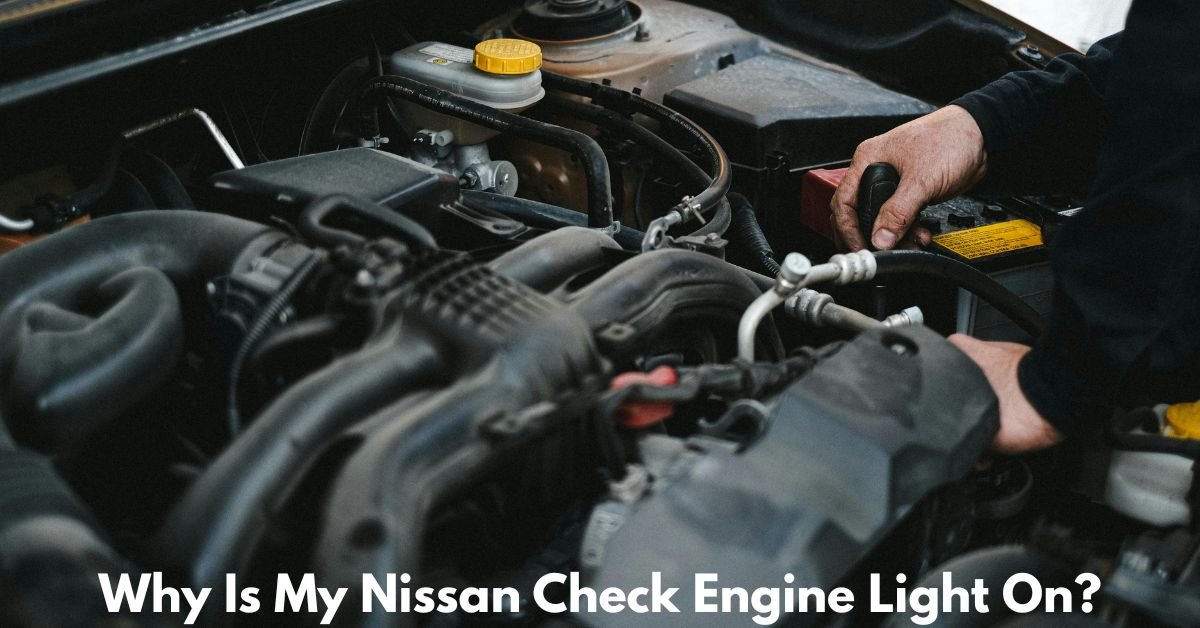There’s nothing more frustrating than starting your car, only to be greeted by that dreaded check engine light on your dashboard. If you’re a Nissan owner, you’re not alone—this is one of the most common issues faced by drivers of all makes and models. But what does it actually mean when the check engine light turns on in your Nissan, and how serious is it?
We’ll explain the potential causes of your Nissan’s check engine light being on, how to identify the issue, and what to do next in this blog post.
Why Is My Nissan Check Engine Light On?
What Is the Check Engine Light?
The Malfunction Indicator Lamp (MIL), the check engine light, is a component of your car’s onboard diagnostics system (OBD-II). It illuminates when the engine computer (ECU) detects something abnormal that could affect emissions, engine performance, or overall vehicle safety.
The light can appear in different ways:
- Steady light: Generally indicates a minor issue.
- Flashing light: A flashing check engine light often means a serious problem like a misfire, which can damage the catalytic converter if not addressed immediately.
Common Reasons Your Nissan’s Check Engine Light Is On
While there are dozens of reasons the light might come on, here are some of the most frequent causes specific to Nissan vehicles:
1. Loose or Damaged Gas Cap
Believe it or not, a loose or cracked gas cap is one of the most common—and easily fixable—reasons for a check engine light. It can allow fuel vapors to leak and mess with your car’s fuel pressure system. Before panicking, try tightening the gas cap or replacing it if it’s damaged.
2. Faulty Oxygen Sensor
The amount of unburned oxygen in your Nissan’s exhaust is tracked by oxygen sensors. A malfunctioning sensor can raise emissions and decrease fuel efficiency. Replacing a faulty O2 sensor promptly is crucial to maintaining engine performance.
3. Failing Catalytic Converter
The catalytic converter helps reduce harmful emissions. If it starts to fail, your car may lose power and efficiency. Replacing it is costly, so early detection of problems (like engine misfires) can help you avoid this major expense.
4. Mass Air Flow (MAF) Sensor Issues
The MAF sensor assists in determining the proper amount of fuel by measuring the air entering your engine. When it malfunctions, it can lead to poor performance and reduced fuel economy. This issue can be resolved by cleaning or replacing the MAF sensor.
Must Read: Who Manufactures Kia Engines?

5. Worn Spark Plugs or Ignition Coils
These components are critical for igniting the air-fuel mixture in the engine. Worn spark plugs or failing ignition coils can cause engine misfires—often triggering a flashing check engine light.
6. Vacuum Leaks
Your engine depends on a vacuum system that is well sealed. If there’s a leak, it can cause rough idling, poor acceleration, and, yes, a check engine light.
How to Diagnose the Problem
If the check engine light comes on, here’s what you should do:
- Check the gas cap: Tighten it and see if the light goes off after a few drives.
- Look for performance issues: If the engine is stalling, idling roughly, or losing power, stop driving and get it checked.
- Use an OBD-II scanner: Many auto parts stores will read the diagnostic trouble code (DTC) for free. These codes point you (or your mechanic) in the right direction.
- Visit a mechanic: If you’re not comfortable diagnosing or fixing the issue yourself, take your Nissan to a certified mechanic or dealership.
Don’t Ignore the Light
Even if your Nissan seems to be running fine, the check engine light is a warning that something isn’t right. Ignoring it can eventually result in more serious and costly issues. Acting early often means the difference between a minor fix and a major repair.
Final Thoughts
The check engine light in your Nissan doesn’t have to be a source of stress. With a little knowledge and timely action, you can often fix the issue quickly and avoid costly repairs. Whether it’s a simple gas cap or a more serious engine component, staying informed is your best defense.
If you’re unsure, always consult with a trusted mechanic to ensure your Nissan stays safe and roadworthy.
